[Lovecraft Country Review with Joe Lipsett] "Holy Ghost" Works When It's Not Being Bombastic
Each week, Joe and Terry discuss the most recent episode of HBO’s Lovecraft Country, alternating between our respective sites — queerhorrormovies.com and gaylydreadful.com.
Episode 1.03 “Holy Ghost”: Hoping to mend her relationship with her sister Ruby (Wunmi Mosaku), Leti (Jurnee Smollett) turns a ramshackle Victorian on Chicago's North Side into a boarding house - an endeavor that stokes neighborhood racism and awakens dormant spirits stuck in the house. Meanwhile, Atticus (Jonathan Majors) remains burdened by a guilty conscience as George's wife Hippolyta (Aunjanue Ellis) presses him for the full story of what happened in Ardham.
Spoilers follow for episode 3 “Holy Ghost”.....
TERRY
Well, we’ve left the horrors and Shoggoths of Ardham behind and we’re squarely back in Chicago, now, Joe. But the events of the first two episodes have left a pall over our characters and they just aren’t doing well coping with their loss and secrets. “Holy Ghost” opens with the funeral for George (I believe, correct me if I’m wrong, Joe?...but that is a funeral, right?) but in yet another mix of anachronism, we’re given the voice over narration for the Nike #BeTrue Pride collection ad. I’m not quite sure what to make of this choice, outside of the fact the narrator is talking to a Lei...which sounds close to Leti, I suppose.
The actually-pretty-cool ad is about Leiomy Maldonado, a legendary vogue artist who was also the first trans woman to appear on America’s Best Dance Crew and, in a little bit of crossover from another show we’ve covered, the choreographer for Pose’s ballroom scenes. Outside of it being a nice little spoken word poem, I don’t quite see the connection...but no matter because we never return to this moment and are instead given stark, late 70s-style horror lettering on the screen:
“In the summer of 1955, a group of Negro men and women moved into a house on the North Side of Chicago. Ten days later, three people went missing inside the house, never to be seen again. Pioneering is dangerous.”
Then we’re given the bulk of a story told through days that Leti spends with her sister Ruby, fixing up an old, boarded up Victorian in a decidedly white neighborhood in North Chicago. Leti bought the house with money from a mysterious inheritance, presumably from her mother...even though her mother didn’t have the kind of money to afford this home.
Preceded by title cards indicating “Day 1” and “Day 2,” etc., we follow Leti and Ruby’s journey to fix up the three floor, one basement and 13 roomed Victorian as a lodge for other Black folks. Elsewhere in Chicago, Hippolyta tries to move on from the death of her husband but doesn’t believe the cover story that Tic, Leti and Montrose (Michael Kenneth Williams) cooked up that conveniently leaves out the monsters and white wizards.
What follows is a pretty standard haunted house story that’s mixed up with some pretty evil atrocities and some equally unpleasant neighbors. Unfortunately, I found the ghostly bumps in the night to be kind of passé. Blankets yanked off the bed by a barely seen hand. Spectors with their jaws ripped off hiding by the bedside. Of course there’s unbearable heat (including a little The Shining nudge with the overpressured boiler in the basement), the elevator that has a mind of its own and Ouija boards that taunt Dee (Jada Harris) and her friends.
You’ve critiqued the bombastic nature of the horror in the previous two episodes, Joe, and I’m really feeling it this episode. The more down-to-earth moments feel authentic if slightly melodramatic, but the more supernatural elements felt shoehorned in this episode, particularly as it crams a full haunted house movie into its slim running time...while also making room for the overarching story of the season to be developed.
But I’m curious what you think, Joe. Did the pacing of this episode bother you like the previous episode, or did it hit some right notes? What did you think of Leti’s investigation into the history of the house and the unsettling things she discovered? And were you living for Leti going all Queen Bey on some cars? I’m also curious, as a reader of the novel, how this adaptation of the Lovecraft Country story “Dreams of the Witch House” fares in relation to the novel.
JOE
Blurg, Terry. I’m trying not to just compare and contrast the series and the book, but the creative decisions in this adaptation really bothered me. It’s a *pretty* significant deviation from the book because in Matt Ruff’s text, there are no secret experiments performed on Black people who are being scooped up by police and fed to a disgraced scientist.
In the book, the ghost in question is exclusively Hiram Winthrop (he has seemingly been broken into two characters here: Horatio Winthrop, mentioned at episode’s end, and also Hiram Epstein, the scientist in question). Book Winthrop is still a racist, so he spends his time haunting Leti in order to drive the Black tenants out of his house. He changes his tune, however, when he realizes that Leti is smart and capable (demonstrated, in all things, by her ability to beat him at board games). When this occurs, he begrudgingly accepts her. Winthrop then kills the three white guys who break in (as the main human adversaries in the chapter, they play a larger role, so their comeuppance feels more satisfactory). Winthrop kills them for two reasons: to keep his house from being vandalized, but also to protect Leti. There’s no goat throat slitting, no mystic, no Ouija board and no “clasp hands and denounce the spirit” sequence.
In reality, these are small changes, but they have a pretty significant impact. The book suggests that a deal can be struck between people of different races, albeit maybe only in death. (It’s important to note, too, that in the book Leti has psychic-adjacent powers that make her more sensitive to things like premonitions and ghosts, so it’s relatively easy for her and Winthrop to connect).
I can’t help but wonder if Green and her team decided to change the story in order to keep the horrors of racism fixed in place. There is no white saviour here; Black people must save themselves from their oppressors. The messaging works, even if - as you suggest - the imagery and the actual hauntings don’t.
One other HUGE distinction (I’ve buried the lede here): in the book Uncle George doesn’t die. Back at Ardham, he is only shot, but he’s resuscitated by the book’s Christina Braithwhite equivalent (so basically Leti’s TV arc).
I won’t lie. I legitimately hate that we only got Courtney B. Vance for two episodes. Of course now that Lovecraft Country has introduced ghosts, there’s every chance he can return in some capacity. But for now...I’m mad.
Like you, I don’t think that the opening scene of George’s funeral is particularly effective because the context just isn’t clear. I legit thought that Leti was simply suffering PTSD in church. Again, this may be the difference between white audiences and black audiences, but it took me until Hippolyta turned the coffee cup over that I realized George was well and truly gone.
In the book, a lot of the stories that succeed the journey to Ardham follow one character almost exclusively. For example, in “Dreams of the Witch House”, Ruby and Tic appear briefly, but they mostly flit through in the background (Ruby refuses to live in the house once the racist protests begin and Tic briefly acts as Leti’s muscle, but for 95% of the time, Leti is doing her own heavy lifting). In fact Montrose and Hippolyta don’t appear at all. The book therefore has the unfortunate effect of “forgetting” about characters for long stretches, but it does allow greater insight into whoever is driving the story when they’re at bat.
For “Holy Ghost” this approach wouldn’t have worked because it would require George’s death to go unremarked upon for an entire episode. My problem is that what we get - the back and forth - simply doesn’t work. Obviously we need to spend time this time with Hippolyta as she grieves, but it’s too cursory; the emotional resonance of her storyline is undone each time we go back to Winthrop house to deal with the baby-headed ghost.
(It doesn’t help that the FX work here isn’t up to par. If we’re being honest: the ghosts don’t look very good)
This is definitely the least successful episode to date for me, Terry. I do love me a slow-mo windshield breaking scene and those generous spurts of blood from the decapitated racist’s neck were <chef’s kiss> but overall, this is a muddled effort for me.
I’ll turn it back to you, Terry: did you get much out of Montrose and Tic’s talk? What did you think of Christina (Abbey Lee)’s brief return? And how great are those period dresses?
TERRY
Oh, Joe I am living for the fashion, particularly with Leti. The costume designers are letting Jurnee live her best life and I’m here for it!
What I’m not here for, though, is Montrose’s character...if only because he’s the most boring kind of asshole. There’s nothing intriguing about his character on the surface. But, Joe...I have a theory. I think Monstrose is secretly gay. And I think that’s where a lot of his rage comes from. Back in the first episode, when Tic was looking for his father he made a trip to Montrose’s watering hole before being directed out back where he finds two men in the midst of enjoying each other. I have a suspicion that this moment coupled with his drinking and apparent self-hatred have a root in internalized and externalized homophobia.
I think it’s also why the series set up George as Tic’s father...a woman stuck in a loveless marriage finds solace in the arms of another kind of thing. Finally, while Lovecraft Country is examining the Black experience in the 50s, it’s also made time to explore the Black woman experience...so it’d make sense if they also add on the Black Queer experience. I have nothing to really back this up except my constant over-examination that’s led me down false roads in our recaps before, but it’s what I’m going with right now. So, no, I guess I didn’t get too much out of Montrose and Tic’s “talk,” except that I think Montrose’s anger comes from overcompensating and believing he needs to project some toxically masculine persona.
As for Christina’s reappearance...I’ll be honest, I thought this coda was the most intriguing bit of the episode as it creates a throughline for the series. I have to admit, though, I don’t quite understand why she’d give Leti the money to buy the Winthrop house. Christina drops some exposition about Horacio Winthrop being the only person to decode pages from The Book of Names. She mentions how amazing it’d be if they found Horatio’s notes as a way of decoding the language of Adam and, presumably, unlocking unlimited power...but I don’t see how that plot necessarily involves Leti. Did she think Leti would find the pages in the house?
I assume, though, that this quest for a way to decode the book is what’s going to be the main narrative thrust for the season? Did I miss something about her plot, Joe? Are you at all interested in the overarching plot that’s connecting the season together or would you rather they simply adhered more to the anthology format? We also didn’t even discuss the fact that not only did Tic and Leti consummate their relationship and potentially take it to the next level but Leti lost her virginity?
JOE
Oh trust, I had *notes* about that sex scene! While I always appreciate an impromptu carnal moment, that looked incredibly uncomfortable for Leti (so many sex scenes feature little more than aggressive thrusting and no foreplay. Plus: the angle on her neck banging against the mirror? No thanks).
I’ll confess that when Tic discovered blood afterwards, I hoped that the series would acknowledge that women (and some men) menstruate. It’s bizarre to me that it’s still a weirdly taboo subject on TV, but in hindsight it definitely makes more sense for Leti to be a virgin (hence the scene of the drunk guy hanging off Tic, explaining how he and Leti used to “wrestle” in high school, which...ick). Still, the series seems to confirm that Leti and Tic will move forward as a couple, which is another made-for-TV storyline, so it’ll be interesting to see how this develops.
I’m actually not opposed to your suggestion about Montrose. I’d totally forgotten about the brief gay BJ in the first episode, so there’s at least an acknowledgement of queerness in the text, and confirmation that it is, of course, secret and taboo.
I hadn’t considered Montrose being queer because I’m too hung up on the idea of a generational divide that separates the characters. Tic, Leti and even Ruby - in her desire to work at Marshall Field’s - are more progressive and seek to live boundary-pushing lives. They’re not content to live within the restrictions that George, Montrose and Hippolyta have accepted (or - more likely - have learned hard lessons about).
This generational divide applies to Christina Braithwhite, too; she’s emblematic of a new breed of racism. She doesn’t barge into Leti’s house with a baseball bat or leave bricks on car horns - that’s an outdated form of hatred. She’s far more insidious and opportunistic; she’s looking for opportunities to make use of Black lives and Black bodies when it suits her agenda. The rationale for giving Leti the money to buy the house is part of that, as is the tease about Winthrop’s book.
This latter piece occupies its own anthology chapter in the book, though it’s not a through-line, so I believe that this final exchange is principally just set-up for the next episode.
We’ll find out, Terry, when we hop back over to QueerHorrorMovies next week for “A History of Violence.”


![[Lovecraft Country Review with Joe Lipsett] "Holy Ghost" Works When It's Not Being Bombastic](https://images.squarespace-cdn.com/content/v1/5b39608d75f9eef54c62c3f0/1598837841238-DN2C2A21GJ32HAXOZ9JL/naomi-mack-jurnee-smollett-wunmi-mosaku-keon-mitchell-jonathan-majors.jpg)





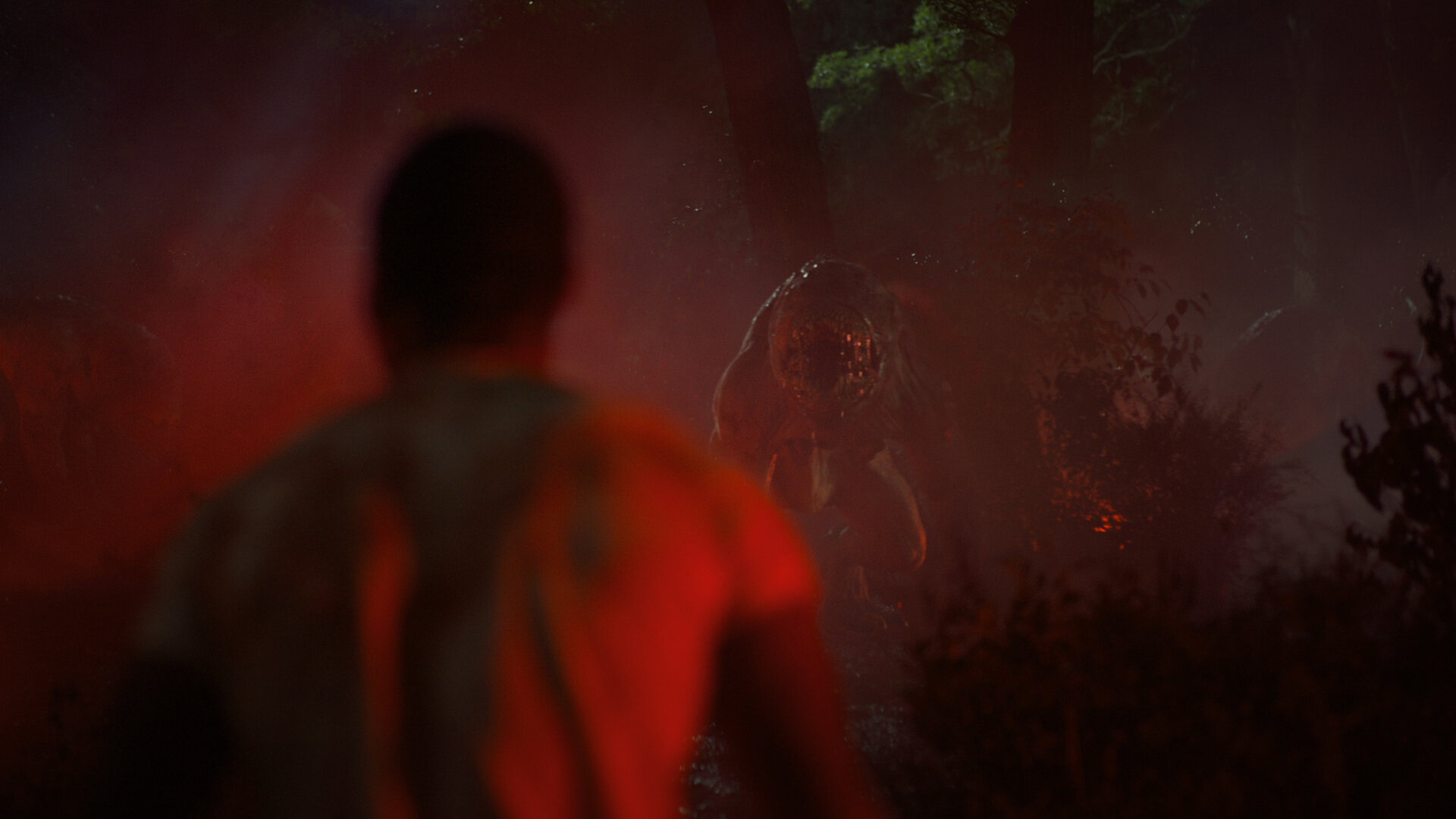
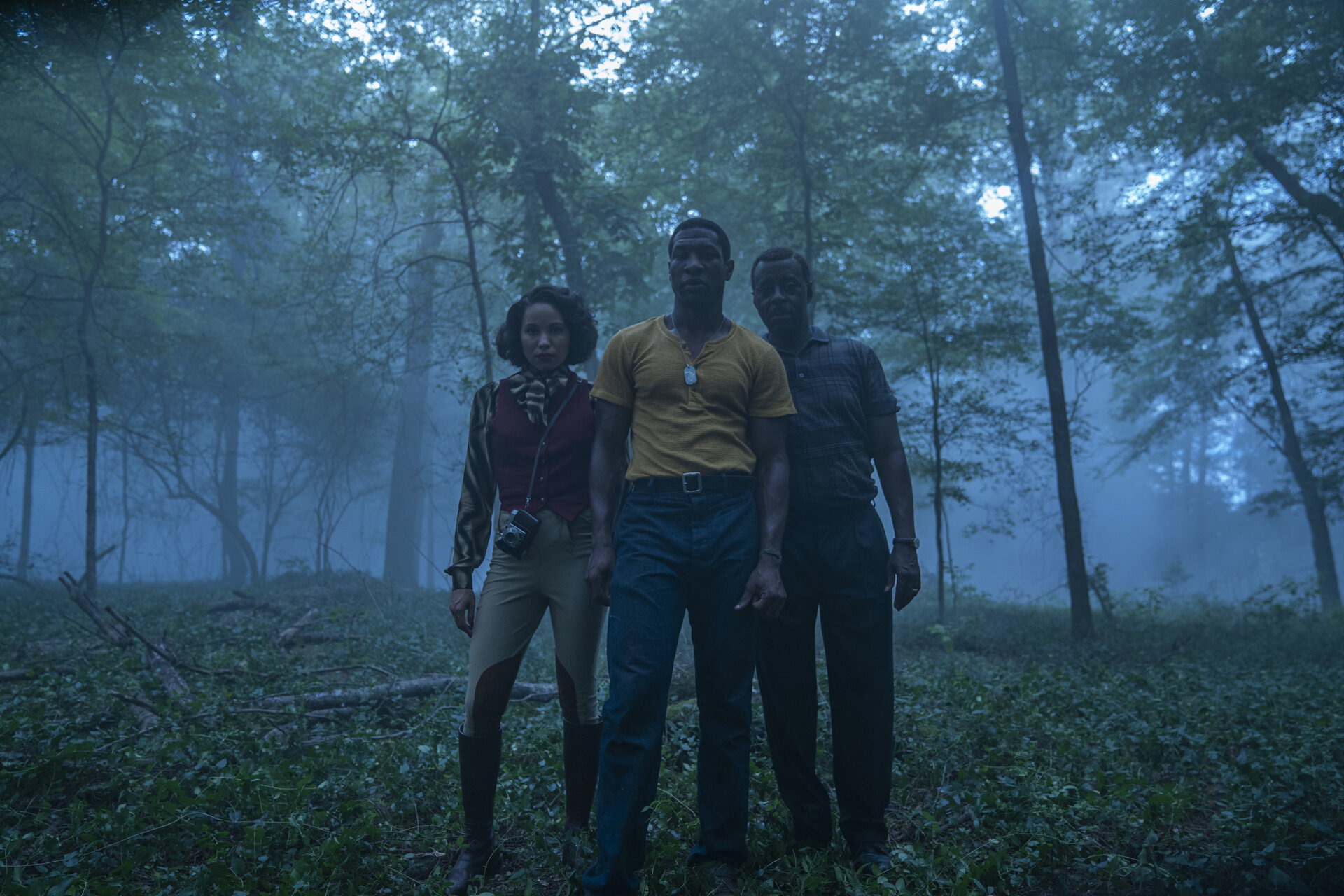
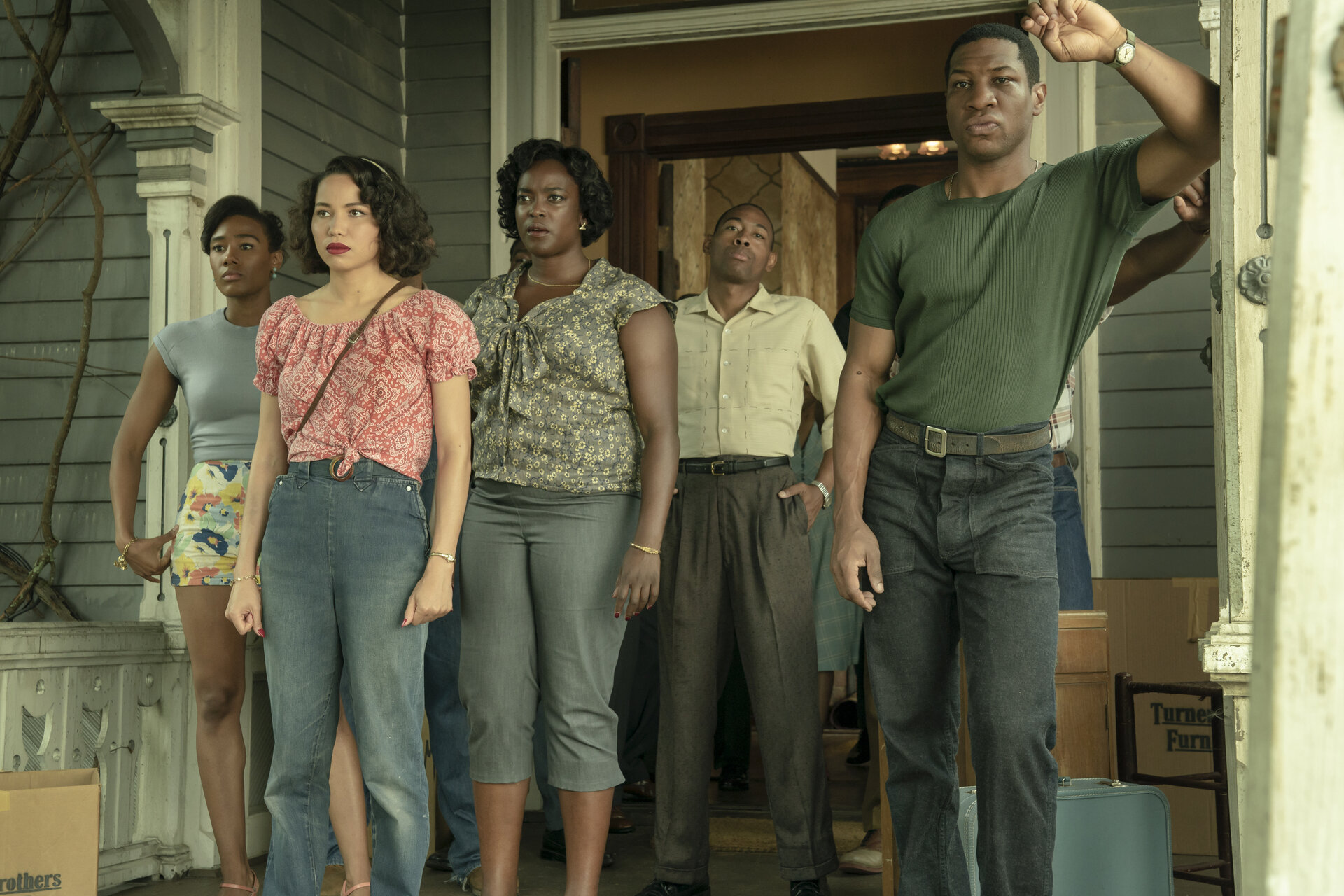
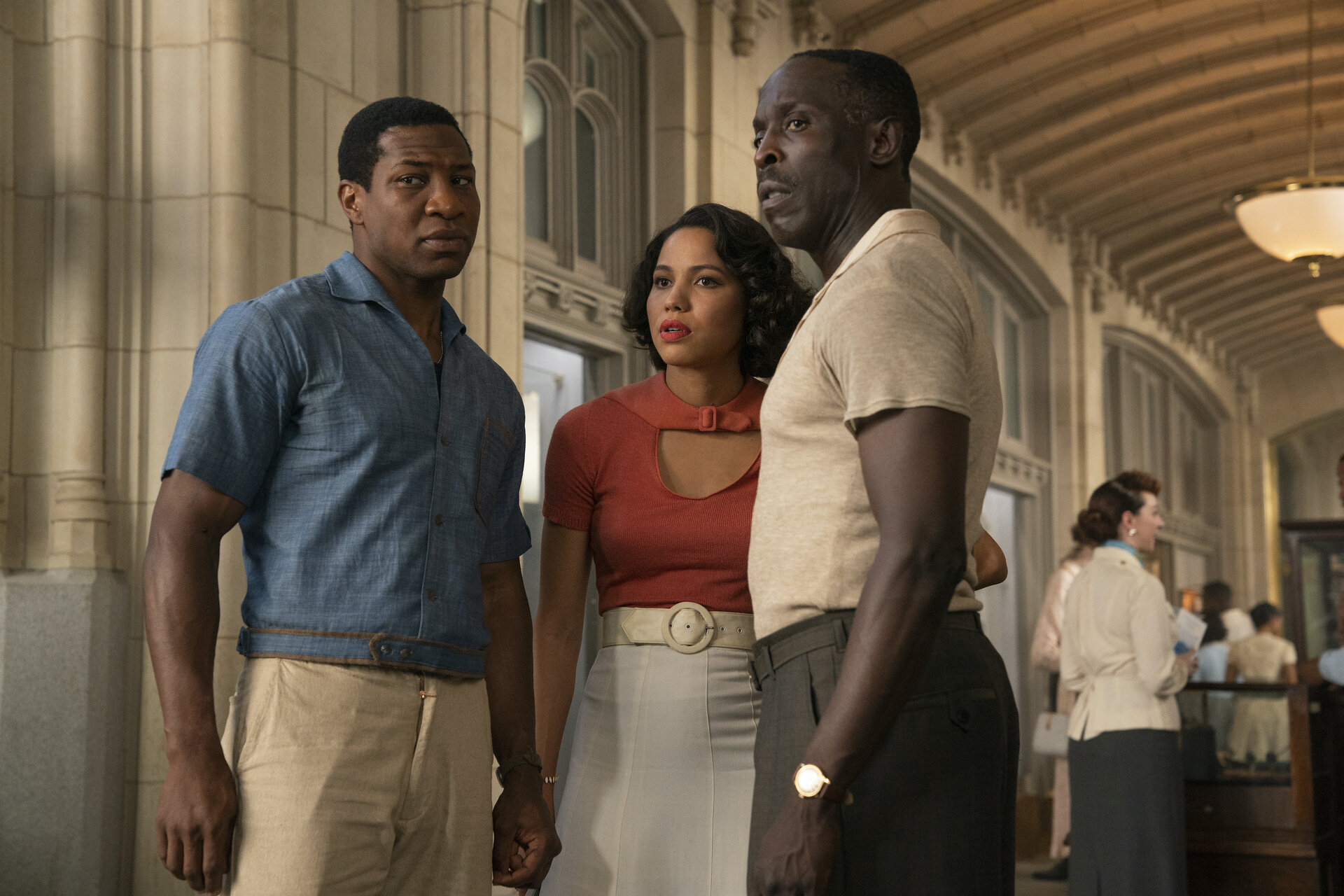
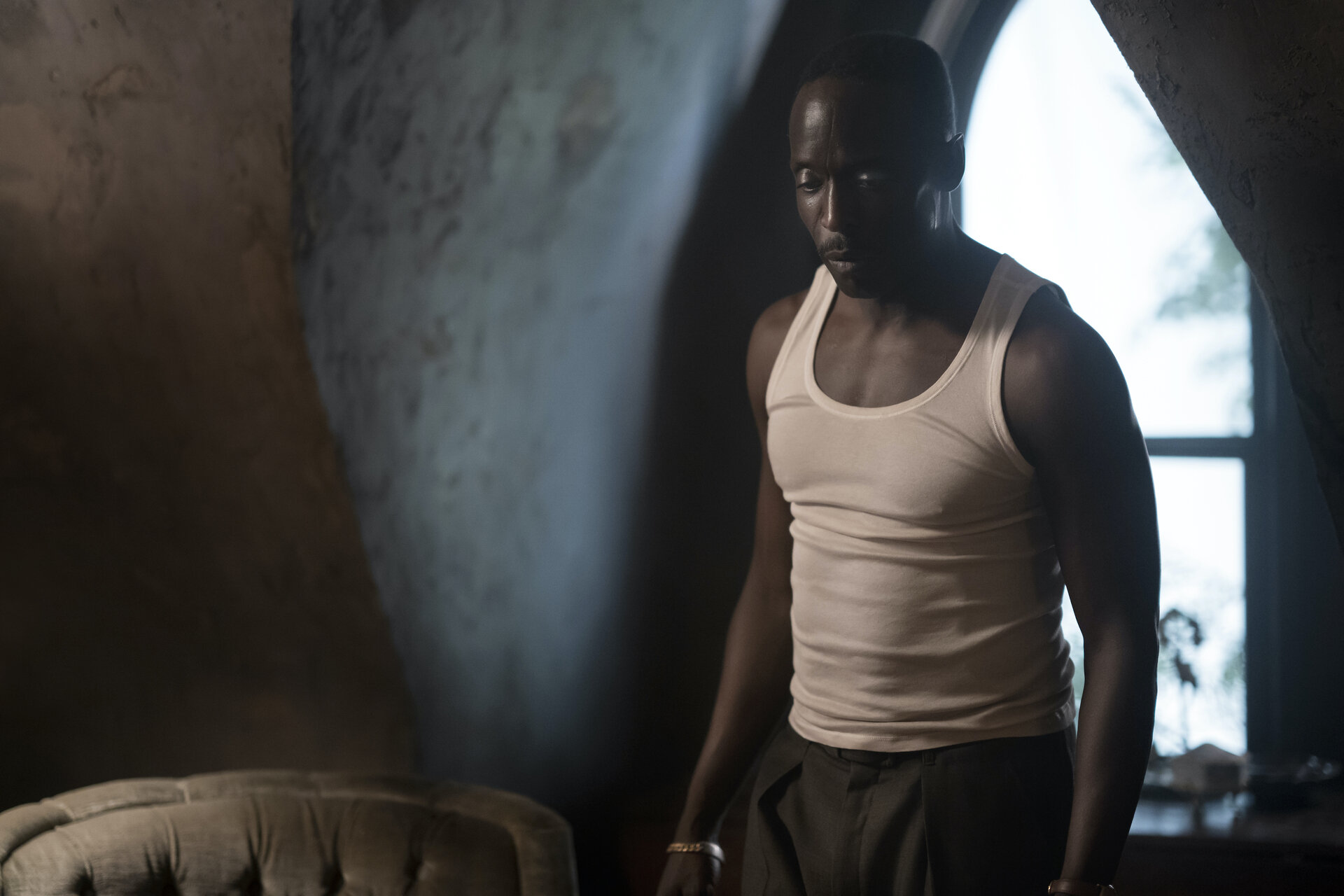
![[FrightFest 2020 Review] Blinders is About the Perils of Human Connection](https://images.squarespace-cdn.com/content/v1/5b39608d75f9eef54c62c3f0/1598636119840-41J1ZIW3J447LRB8V6C9/Blinders+poster.jpeg)
![[FrightFest 2020 Review] The Columnist Looks Deep into the Internet...and It Looks Back](https://images.squarespace-cdn.com/content/v1/5b39608d75f9eef54c62c3f0/1598558776344-G7NJC5RV0IFSTU64HJZU/The+Columnist+Poster-page-0.jpg)
![[The Outsider Recap with Joe Lipsett] "Tear-Drinker" Leaves the Two of Us Conflicted](https://images.squarespace-cdn.com/content/v1/5b39608d75f9eef54c62c3f0/1580701906547-BQHVTTO20CX4I36JW30Y/Screen-Shot-2020-02-01-at-3.50.58-PM.png)
![[Lovecraft Country Review with Joe Lipsett] "Sundown" Tackles Real World Situations with a Deliciously Pulpy Heart](https://images.squarespace-cdn.com/content/v1/5b39608d75f9eef54c62c3f0/1598141357175-C6IYNSMKOKOTGTOTLSEQ/LVC101_Shoggoth2%5B1%5D.jpg)
![[Lovecraft Country Review with Joe Lipsett] "Strange Case" Has a Queer Problem](https://images.squarespace-cdn.com/content/v1/5b39608d75f9eef54c62c3f0/1600039421165-ST4871N95QOF0YI8QVUF/michael-k-williams%281%29.jpg)